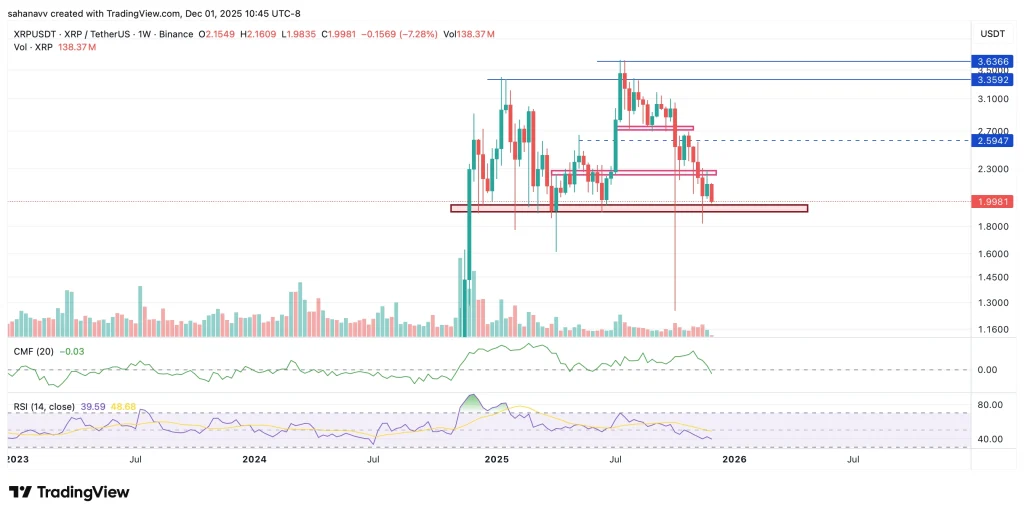Blockchain-Driven Fiscal Transparency: The Philippines’ On-Chain Budgeting Initiative and Its Implications for Sovereign Debt Markets
- The Philippines proposes blockchain-based on-chain budgeting to enhance fiscal transparency and traceability, positioning itself as the first nation to adopt decentralized governance for national spending. - A 10,000 BTC strategic reserve, stored in a 20-year cold trust with quarterly audits, aims to hedge against fiat volatility and diversify the $285B debt portfolio. - These initiatives align with global trends in blockchain governance, potentially lowering borrowing costs and attracting investors amid
The Philippines is pioneering a bold experiment in fiscal governance, leveraging blockchain technology to transform its national budgeting process and reshape its approach to sovereign debt management. Senator Bam Aquino’s proposed On-Chain Budgeting Initiative seeks to record the entire national budget on a blockchain platform, ensuring real-time transparency and traceability for every peso spent. This move, if implemented, would position the Philippines as the first country to fully adopt a decentralized fiscal governance model, with potential ripple effects on global debt markets [1].
The Technical Framework: Polygon, Prismo, and Public Accountability
The initiative builds on the Department of Budget and Management’s (DBM) existing blockchain infrastructure, which already uses Polygon’s Proof-of-Stake network and BayaniChain’s Prismo system to secure financial documents like Special Allotment Release Orders (SAROs) and Notices of Cash Allocation (NCAs) [2]. Prismo’s encryption, validation, and data orchestration capabilities ensure tamper-proof records, addressing long-standing concerns about corruption and mismanagement in public spending [3]. By expanding this system to cover the entire budget, the Philippines aims to create an immutable ledger that empowers citizens to monitor government expenditures in real time.
This technical foundation aligns with global trends in blockchain adoption for governance. Countries like Estonia and Georgia have used blockchain to secure land registries and public procurement systems, while the U.S. Department of Commerce has explored publishing GDP data on a blockchain [4]. The Philippines’ ambition, however, is unprecedented in scope, as it seeks to fully digitize fiscal accountability at a national level.
The Strategic Bitcoin Reserve: A Hedge Against Volatility
Complementing the on-chain budgeting effort is the Strategic Bitcoin Reserve Act, which proposes acquiring 10,000 BTC over five years to serve as a sovereign asset. This reserve, stored in a 20-year cold storage trust with quarterly cryptographic audits, is designed to hedge against fiat volatility and geopolitical risks [5]. By treating Bitcoin as a strategic reserve—similar to the U.S. Strategic Petroleum Reserve—the Philippines aims to diversify its $285 billion national debt portfolio and reduce reliance on the U.S. dollar [6].
This move reflects a broader global shift toward de-dollarization and the institutionalization of Bitcoin as a store of value. Countries like Türkiye and Luxembourg have already issued blockchain-based digital bonds, demonstrating the potential for decentralized technologies to enhance transparency and efficiency in sovereign financing [7]. If successful, the Philippines’ Bitcoin reserve could lower perceived default risk, attract yield-hungry investors, and reduce bond yields—a critical consideration for a nation with a debt-to-GDP ratio of 60% [8].
Sovereign Debt Metrics: Credit Ratings, Yields, and Investor Confidence
While the Philippines’ blockchain initiatives are still in their early stages, the country’s sovereign debt metrics have shown resilience. As of April 2025, Fitch Ratings affirmed the Philippines’ BBB rating with a stable outlook, citing strong economic fundamentals and fiscal consolidation efforts [9]. Standard & Poor’s maintains a BBB+ rating with a positive outlook, and Japan’s R&I upgraded the country to A- in recognition of its macroeconomic stability [10]. These ratings suggest that investor confidence remains high, even as the government explores innovative fiscal tools.
However, the direct impact of blockchain-driven transparency on debt metrics remains unquantified. A 2025 study by the OECD noted that blockchain’s inherent transparency could reduce information asymmetry in debt markets, potentially lowering borrowing costs for sovereigns [11]. Similarly, Luxembourg’s issuance of Digital Treasury Certificates via DLT in June 2025 demonstrated how blockchain can enhance investor trust and streamline settlement processes [12]. If the Philippines’ initiatives succeed in replicating these outcomes, the country could see further improvements in its credit profile and access to capital.
Challenges and Risks
Despite its potential, the Philippines’ blockchain strategy faces hurdles. Bitcoin’s price volatility poses a risk to the Strategic Bitcoin Reserve, as a significant drop in value could erode its purchasing power over the 20-year lockup period [13]. Additionally, the success of the on-chain budgeting initiative depends on legislative adoption, public education, and the scalability of existing blockchain infrastructure. Critics also highlight the need for robust governance frameworks to prevent misuse of the Bitcoin reserve and ensure transparency in its management [14].
Conclusion: A Model for the Future?
The Philippines’ On-Chain Budgeting Initiative and Strategic Bitcoin Reserve represent a visionary approach to fiscal governance, blending technological innovation with traditional economic principles. By leveraging blockchain’s transparency and immutability, the country aims to reduce corruption, enhance public trust, and position itself as a leader in digital-age governance. While the full impact on sovereign debt markets remains to be seen, early indicators—such as stable credit ratings and global precedents—suggest that blockchain-driven fiscal transparency could reshape the landscape of emerging market debt.
As the world watches, the Philippines’ experiment may offer a blueprint for how nations can harness decentralized technologies to build more accountable, resilient, and investor-friendly economies.
Source:
[1] Philippine Senator Pushes National Budget on Blockchain
[2] Philippines Launches Blockchain Document System on Polygon
[3] Senator Pushes Blockchain Budget to Force Political Accountability
[4] Philippines Eyes Blockchain for National Budget
[5] The Philippines' Bitcoin Reserve Proposal: A Strategic Shift
[6] Philippines Congressman Proposes BTC Reserve to Attack National Debt
[7] Tracker of New FinTech Applications in Bond Markets
[8] Philippines to Consider Strategic Bitcoin Reserve With 20-Year Lockup
[9] Recto: Fitch's Affirmation of the PH's Credit Rating at 'BBB'
[10] Recto: R&I's Upgrade of PH Credit Rating to A-
[11] Retail Investors and Sovereign Debt: Why Now and What Next
[12] Luxembourg’s Digital Treasury Certificates
[13] Philippine Lawmaker Proposes Strategic Bitcoin Reserve
[14] Philippines Proposes Strategic Bitcoin National Reserve
Disclaimer: The content of this article solely reflects the author's opinion and does not represent the platform in any capacity. This article is not intended to serve as a reference for making investment decisions.
You may also like
569 XRP Whales Disappear—Yet Whale Holdings Hit 7-Year High. What’s Going On?

![Crypto News Today [Live] Updates On December 2,2025 : Federal Reserve News, Bitcoin Price Today, Ethereum Price And XRP Price](https://img.bgstatic.com/multiLang/image/social/cc963d16638fb3fac964f28463fe5c9a1764673944776.webp)
Pi Network Flashback: Did the Founder Reveal When Pi Coin Will Actually Start Rising?
HashKey prospectus in detail: 1.5 billion HKD loss over three years, 43% equity controlled by Wanxiang Chairman Lu Weiding
Despite HashKey's significant total revenue growth over the past two years, with rapid expansion in trading volume and client base, the underlying financial pressure remains evident: ongoing losses, long-term negative operating cash flow, and consistently high net debt all contribute to continued uncertainty regarding its financial resilience ahead of its IPO.
